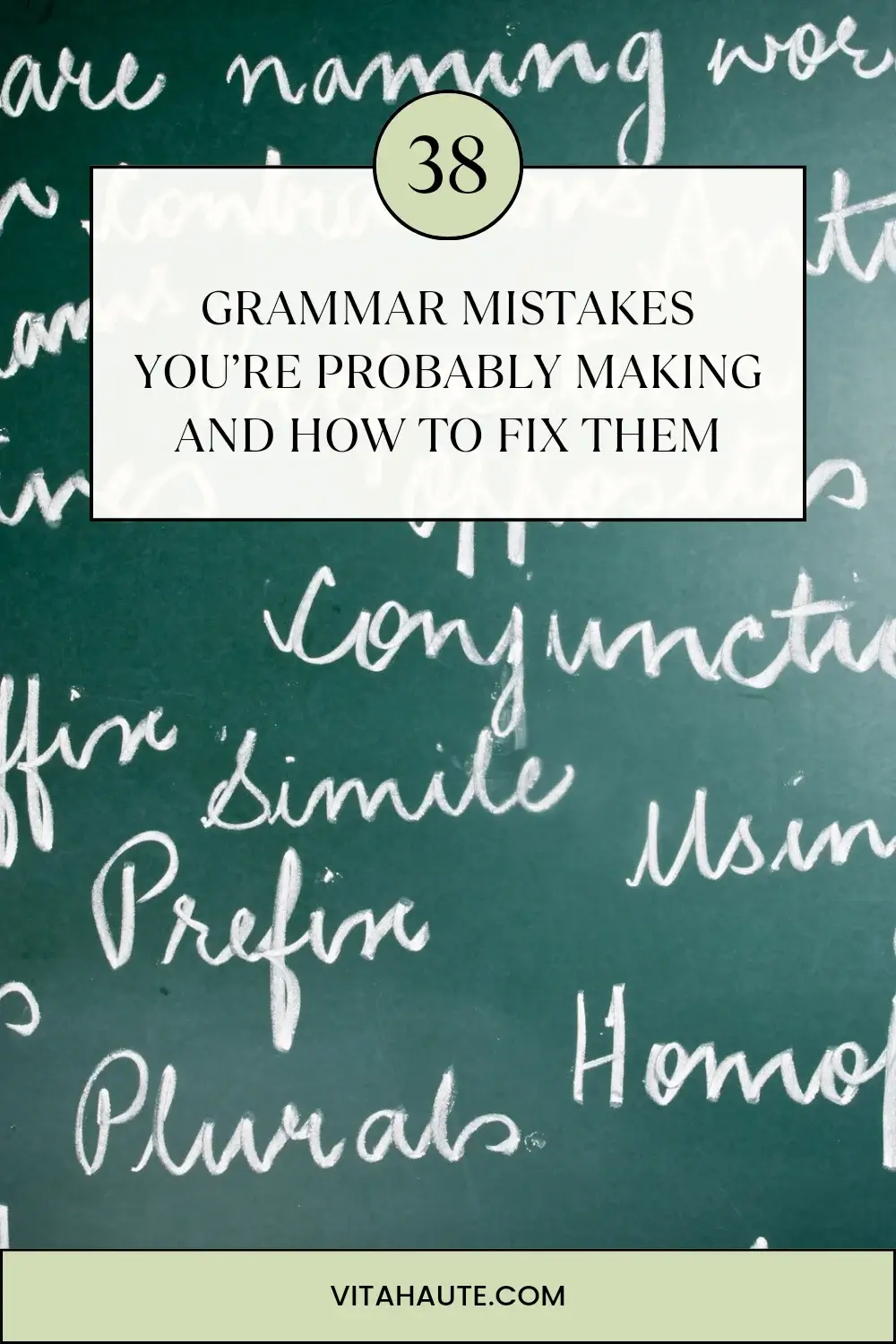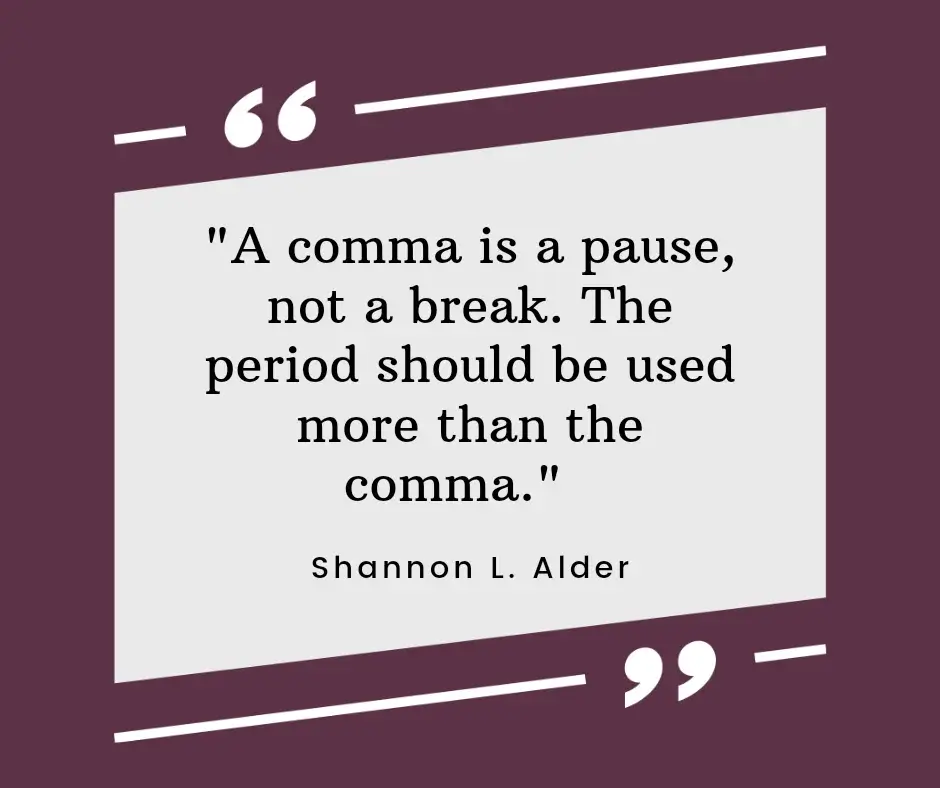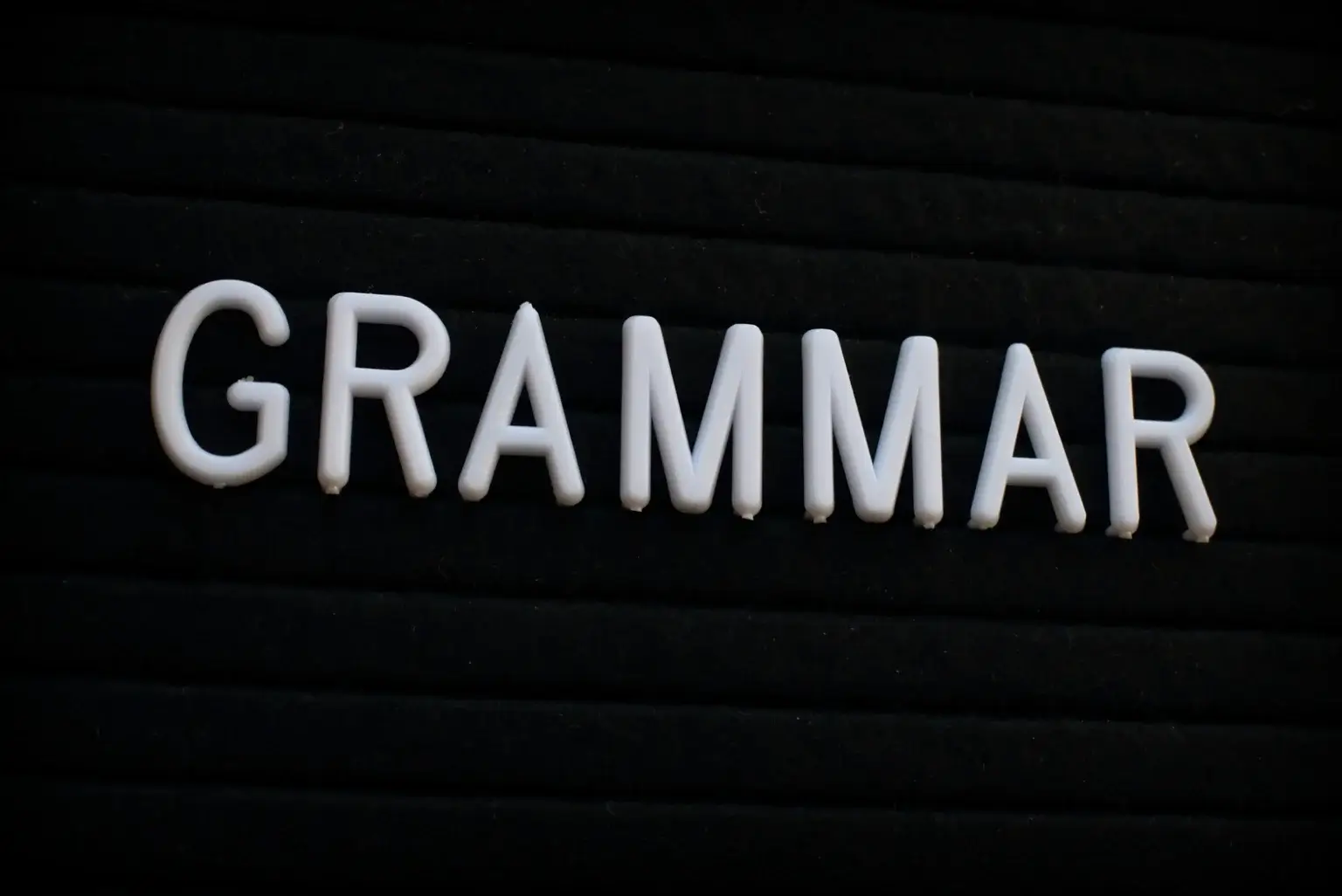Even native English speakers are not exempt from making mistakes, as English is considered one of the most challenging languages in the world. The complexities arise from the fact that words aren’t always spelled as they sound, unlike in many other languages, compounded by countless grammar rules and their exceptions. Mastering English is incredibly valuable, as it opens the door to communicating with over 1 billion people worldwide.
In this post, I’ll walk you through 38 common English mistakes, offering examples and practical tips for each to help you avoid these pitfalls and improve your language skills.
This post contains affiliate links. Please read our disclosure.

1. Into vs. In to
Example sentence (Into): She walked into the room and sat down.
Example sentence (In to): He logged in to his account to check the messages.
Tip: Remember that “into” implies movement or direction toward something, while “in to” is a combination of the preposition “in” and the verb “to.” Think of “into” as a one-word action and “in to” as two separate words indicating a location and an action.
2. Good vs. Well
Example sentence (Good): She did a good job on her presentation.
Example sentence (Well): He plays the guitar well.
Tip: Use “good” as an adjective to describe nouns (people, things, or places), and use “well” as an adverb to describe how an action is performed. If you can replace the word with “excellent,” use “good,” and if you can replace it with “how,” use “well.”
3. Between vs. Among
Example sentence (Between): The secret was shared between John and Sarah.
Example sentence (Among): She distributed the prizes among the winners.
Tip: Use “between” when referring to two items or people, and use “among” for three or more. If you’re talking about a relationship or division involving two, it’s “between”; if it’s a group or collective, it’s “among.”
4. Due to vs. Because of
Example sentence (Due to): The cancellation was due to the storm.
Example sentence (Because of): The flight was delayed because of the storm.
Tip: Use “due to” after a form of the verb “to be” (is, was, were), as it functions like an adjective. Use “because of” before a noun to explain the reason for an action or event.
5. Whether vs. If
Example sentence (Whether): She wasn’t sure whether to go to the party or stay home.
Example sentence (If): I’ll go to the party if I finish my work on time.
Tip: Use “whether” when presenting two or more alternatives or expressing doubt, and “if” for conditional situations, often involving a choice or possibility.
6. Lie vs. Lay
Example sentence (Lie): I’m going to lie down for a nap.
Example sentence (Lay): Please lay the book on the table.
Tip: “Lie” means to recline or be in a resting position (and does not need a direct object), while “lay” means to put or place something down (and requires a direct object).
7. Amount vs. Number
Example sentence (Amount): The amount of sugar in the recipe is too much.
Example sentence (Number): The number of cookies in the jar is increasing.
Tip: Use “amount” for uncountable nouns (like sugar or water) and “number” for countable nouns (like cookies or people).
9. Different from vs. Different than
Example sentence (Different from): Her opinion is different from mine.
Example sentence (Different than): This version is different than the one we discussed earlier.
Tip: “Different from” is the more widely accepted phrase for comparisons, while “different than” is often used in informal contexts or when following certain verbs like “is.”
10. Since vs. Because
Example sentence (Since): I haven’t seen her since last week.
Example sentence (Because): I stayed home because it was raining.
Tip: Use “since” for a specific point in time or duration, and “because” to explain a cause or reason for something happening.
11. Could of vs. Could have
Example sentence (Could have): I could have finished the project yesterday.
Example sentence (Could of): Incorrect: I could of finished the project yesterday.
Tip: “Could have” is the correct form because it’s the past perfect modal. “Could of” is a common mishearing and should always be “could have.”
12. Supposed to vs. Suppose to
Example sentence (Supposed to): I’m supposed to meet him at 5 PM.
Example sentence (Suppose to): Incorrect: I’m suppose to meet him at 5 PM.
Tip: “Supposed to” is the correct form, used to indicate obligation or expectation. “Suppose to” is incorrect and should be avoided.
13. Hyphenation
Example sentence (Hyphenation in compound adjectives): She is a well-known author.
Tip: Use a hyphen to connect two or more words that work together as a single adjective before a noun. For example, “well-known” describes the author, so it needs a hyphen. However, when the compound adjective comes after the noun, the hyphen is usually omitted (e.g., “The author is well known”).
14. Than vs. Then
Example sentence (Than): She is taller than her brother.
Example sentence (Then): First, we’ll eat dinner, and then we can watch a movie.
Tip: Use “than” for comparisons, and use “then” to indicate time or sequence of events.
15. Whoever vs. Whomever
Example sentence (Whoever): Whoever arrives first will get the best seat.
Example sentence (Whomever): You can trust whomever you hire for the project.
Tip: “Whoever” is used as the subject of a sentence, and “whomever” is used as the object. To decide which to use, check if the word functions as the subject or object of the clause.
16. Ensure vs. Insure vs. Assure
Example sentence (Ensure): We need to ensure that all documents are submitted by the deadline.
Example sentence (Insure): You should insure your car against accidents.
Example sentence (Assure): I assure you that the project will be completed on time.
Tip: “Ensure” means to make certain, “insure” refers to insurance, and “assure” means to reassure or guarantee someone’s confidence.
17. Principal vs. Principle
Example sentence (Principal): The principal of the school gave an inspiring speech.
Example sentence (Principle): He follows the principle of honesty in all his dealings.
Tip: “Principal” refers to a person or the most important thing, while “principle” refers to a basic rule or belief.
18. Historic vs. Historical
Example sentence (Historic): The signing of the peace treaty was a historic event.
Example sentence (Historical): She is studying historical events from the 18th century.
Tip: “Historic” refers to something important in history, while “historical” simply means relating to history.
19. Everyday vs. Every day
Example sentence (Everyday): These are my everyday shoes, worn for casual outings.
Example sentence (Every day): I go for a run every day to stay fit.
Tip: “Everyday” is an adjective used to describe something routine or common, while “every day” refers to each individual day.
20. Amongst vs. Among
Example sentence (Among): The secret was kept among the group of friends.
Example sentence (Amongst): The treasure was hidden amongst the trees.
Tip: “Among” is the more commonly used form, while “amongst” is an older variation with the same meaning, typically found in more formal or literary contexts.
21. While vs. Whilst
Example sentence (While): He was reading a book while waiting for the bus.
Example sentence (Whilst): She enjoyed a cup of tea whilst watching the sunset.
Tip: “While” is the preferred and more common form in modern English, while “whilst” is more formal or archaic but still used in British English.
22. Toward vs. Towards
Example sentence (Toward): She walked toward the door.
Example sentence (Towards): They headed towards the exit when the event ended.
Tip: Both “toward” and “towards” are correct, but “toward” is more commonly used in American English, while “towards” is preferred in British English.
23. Who vs. Which
Example sentence (Who): The teacher, who is very kind, helped me with my homework.
Example sentence (Which): The book, which I borrowed from the library, was fascinating.
Tip: Use “who” when referring to people, and “which” when referring to things or animals (though “who” can sometimes be used for animals when personified).
24. Myself vs. Me
Example sentence (Me): He gave the book to me.
Example sentence (Myself): I made the decision by myself.
Tip: “Me” is an object pronoun, used as a direct or indirect object. “Myself” is a reflexive pronoun, used for emphasis or to reflect back to the subject of the sentence.
25. None vs. Any
Example sentence (None): None of the students passed the test.
Example sentence (Any): Do you have any questions about the assignment?
Tip: Use “none” when you are referring to a specific amount of something and want to emphasize none of it, and use “any” when asking about or referring to an indefinite amount.
26. As vs. Like
Example sentence (As): She worked as a teacher for five years.
Example sentence (Like): She looks like her sister.
Tip: Use “as” when describing a role or function, and “like” when making comparisons between two things.
27. That vs. Those
Example sentence (That): That book on the shelf is mine.
Example sentence (Those): Those books on the table are for sale.
Tip: Use “that” for singular nouns or when referring to something specific, and “those” for plural nouns or to refer to multiple things.
28. Disinterested vs. Uninterested
Example sentence (Disinterested): The judge remained disinterested throughout the trial.
Example sentence (Uninterested): I’m uninterested in the latest gossip.
Tip: “Disinterested” means impartial or unbiased, while “uninterested” means not interested or indifferent.
29. First vs. Firstly
Example sentence (First): First, we need to complete the report before the meeting.
Example sentence (Firstly): Firstly, I want to thank everyone for attending today.
Tip: “First” is the more commonly used form, while “firstly” is considered more formal or old-fashioned. Stick with “first” in most cases.
30. Hopefully
Example sentence: Hopefully, we’ll finish the project by the end of the week.
Tip: “Hopefully” is often used to express a wish or hope, but avoid using it as a sentence opener in formal writing, as it can lead to ambiguity.
31. Overexaggerate vs. Exaggerate
Example sentence (Exaggerate): He tends to exaggerate the details of his stories.
Example sentence (Overexaggerate): Incorrect: He tends to overexaggerate the details of his stories.
Tip: “Exaggerate” means to make something seem more extreme than it is. “Overexaggerate” is a redundant phrase, as “exaggerate” already implies exaggeration.
32. Its vs. It’s
Example sentence (Its): The dog wagged its tail.
Example sentence (It’s): It’s raining outside.
Tip: “Its” is the possessive form of “it,” and “it’s” is a contraction for “it is” or “it has.”
33. Data as Singular or Plural
Example sentence (Plural): The data show a significant increase in sales.
Example sentence (Singular): The data is being analyzed.
Tip: “Data” is traditionally plural, but it is often treated as singular in everyday use, especially in non-scientific contexts.
34. Onto vs. On to
Example sentence (Onto): She climbed onto the roof to get a better view.
Example sentence (On to): After the meeting, we moved on to the next agenda item.
Tip: Use “onto” when describing movement toward a surface, and use “on to” when the action continues to something else (like a transition).
35. Literally
Example sentence: He was so hungry, he literally ate an entire pizza in one sitting.
Tip: Use “literally” to indicate something is true in a literal sense, but be careful not to overuse it for exaggeration, as this can cause confusion.
36. That vs. Which
Example sentence (That): The book that you gave me was fantastic.
Example sentence (Which): The book, which I borrowed from the library, was fantastic.
Tip: Use “that” for essential clauses (no commas), and “which” for non-essential clauses (with commas).
37. Semicolon
Example sentence (Semicolon): She loves to read books; her favorite genre is mystery.
Tip: Use a semicolon to link closely related independent clauses without a conjunction. It can also be used to separate items in a complex list.
38. Colon
Example sentence (Colon): He has three favorite hobbies: reading, hiking, and photography.
Tip: Use a colon to introduce a list, explanation, or elaboration after an independent clause. The part before the colon should be a complete sentence.
Conclusion
English is widely regarded as one of the most difficult languages. Its challenges come from unpredictable spelling, numerous grammar rules, and exceptions. Nevertheless, improving your English skills can be extremely rewarding, as it allows you to communicate with over a billion people worldwide. With a bit of practice and attention to detail, you can make significant strides in becoming a more confident and effective communicator in English.



